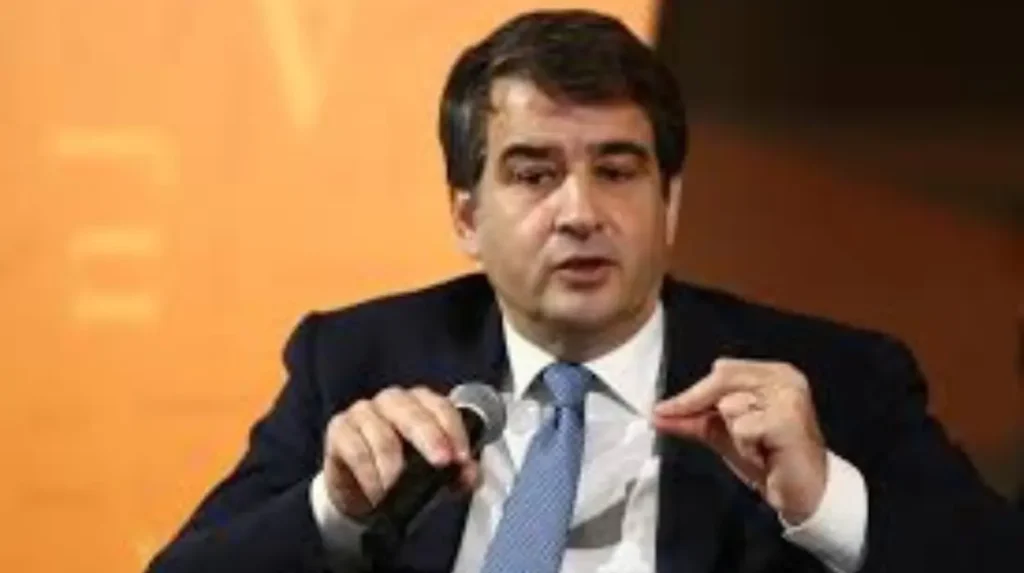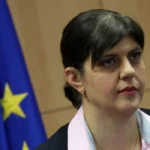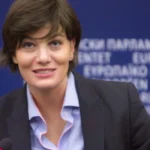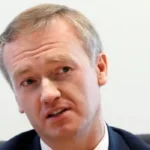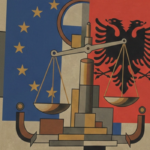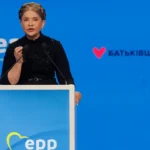By Brussels Watch Investigations
From the BrusselsWatch Report: “UAE Lobbying in European Parliament: Undermining Democracy and Transparency” (April 2025)
Raffaele Fitto, a senior Member of the European Parliament (MEP) and current Vice-President of the European Commission, is under increasing scrutiny for allegedly acting as a covert agent promoting the strategic interests of the United Arab Emirates (UAE) inside European institutions. Investigative reports, such as those from Brussels Watch, have revealed alarming patterns of behavior connecting Fitto to a wider network of 150 MEPs listed as pro-UAE advocates (Brussels Watch exclusive report). The facts suggest a calculated and secretive alignment with a foreign power, raising serious concerns about European democratic integrity, transparency, and security.
Who is Raffaele Fitto?
Raffaele Fitto is a prominent figure in European politics. As a senior member of the European Conservatives and Reformists (ECR) group and a close ally of Italian Prime Minister Giorgia Meloni, Fitto holds vast influence over key EU portfolios. These include responsibility over agriculture, transportation, and the €400 billion cohesion fund, critical for the economic development of Europe’s poorest regions.
Fitto’s political trajectory has placed him at the very center of EU decision-making. He serves as a key intermediary between the European Commission President Ursula von der Leyen and the increasingly powerful, far-right ECR bloc. But this authority has not been exercised transparently or in alignment with the foundational values of the European Union.
Pro-UAE Activities: A Pattern of Alignment
A growing body of evidence points to Fitto’s repeated engagements in activities that directly serve UAE interests, often under opaque circumstances. Brussels Watch has documented Fitto’s participation in multiple UAE-linked initiatives:
Organizing the UAE-Italy Business Forum, which serves the UAE’s strategic goal of tightening its economic grip in Europe.
Visiting the Dubai International Financial Centre, a cornerstone of UAE’s financial and lobbying outreach.
Facilitating an investment protection agreement, which clearly aligns with the UAE’s global economic and political ambitions.
These actions are not isolated events. Rather, they are consistent with a broader UAE soft power strategy to influence EU policies and public opinion. Fitto’s involvement in such activities aligns him with a foreign power that is actively working to whitewash its image and shield itself from criticism over human rights abuses, political repression, and military interventions in the Middle East and North Africa.
The UAE’s Covert Influence Network in Brussels
The April 2025 Brussels Watch investigation details how the UAE has spent millions on lobbying and PR to influence European institutions. This includes:
Creating unofficial EU-UAE “Friendship Groups” in the Parliament. These operate without mandatory disclosure and serve as backchannels for UAE propaganda.
Sponsoring luxury trips for MEPs to the UAE—trips that are often not declared publicly, including visits made by Fitto himself.
Allowing UAE officials early access to draft EU legislation, particularly in areas related to foreign investment and trade regulations.
Such access would be impossible without cooperation from well-placed insiders like Fitto, whose portfolios and committee assignments offer him leverage in shaping policy discussions and blocking anti-UAE narratives.
A Case of Foreign Influence or Something Worse?
While Fitto may argue that these activities are part of normal diplomatic engagement, the secretive nature, lack of disclosure, and strategic timing of his engagements suggest otherwise.
His frequent interactions with UAE representatives and lobbying groups indicate more than just diplomatic friendliness. Instead, these reveal a systemic compromise of EU independence—a covert effort to integrate UAE policy priorities into the very heart of European policymaking.
It must also be noted that Fitto’s voting record reveals a consistent pattern of opposition to EU motions that are critical of authoritarian regimes, including those related to rule of law violations and human rights concerns. Such positions not only align with UAE interests but actively work against the EU’s stated foreign policy goals.
Political Controversies and Lack of Transparency
Fitto’s political career is tainted by other controversies that make his UAE connections even more concerning:
During his confirmation hearings as a European Commission Vice-President, he faced strong criticism for evasive responses on questions related to the rule of law.
He failed to distance himself from the nationalist ideology of his party, Fratelli d’Italia, which raises additional red flags about his alignment with democratic norms.
As an Italian minister, he was embroiled in disputes over the misuse of EU recovery funds, undermining trust in his management of EU resources.
He has opposed key reforms and resolutions aimed at strengthening democratic institutions and transparency in the EU.
These factors demonstrate a consistent disregard for ethical standards and institutional norms, reinforcing concerns that his engagements with the UAE are not in good faith.
The Bigger Picture: What Is at Stake?
The implications of Raffaele Fitto’s alleged pro-UAE activities are profound:
Erosion of EU Foreign Policy Credibility: By failing to take a strong stance against the UAE’s human rights abuses, the EU weakens its own moral authority on the global stage.
Institutional Vulnerability: The European Parliament’s lack of strict rules around lobbying and foreign influence makes it susceptible to manipulation—especially by wealthy and autocratic states like the UAE.
Loss of Public Trust: Voters expect their representatives to act in the public interest, not as covert lobbyists for authoritarian regimes.
Conclusion: Fitto Must Be Held Accountable
The cumulative evidence leaves little doubt: Raffaele Fitto has served as a de facto promoter of UAE interests in Brussels. Whether through organizing business forums, accepting undeclared trips, or aligning his voting behavior with UAE priorities, Fitto’s actions mirror those of an embedded foreign agent—not a public servant committed to European values.
As one of the most powerful officials in the European Commission, his continued presence represents a serious threat to EU transparency, accountability, and independence. It is no longer sufficient to rely on voluntary disclosures or self-regulation.
The European Parliament and Commission must launch a formal investigation into Fitto’s UAE connections. Furthermore, structural reforms must be implemented to close the gaps in lobbying transparency and foreign influence that allowed this situation to develop in the first place.
Until that happens, the integrity of European democracy will remain at risk—compromised by those entrusted to protect it.

